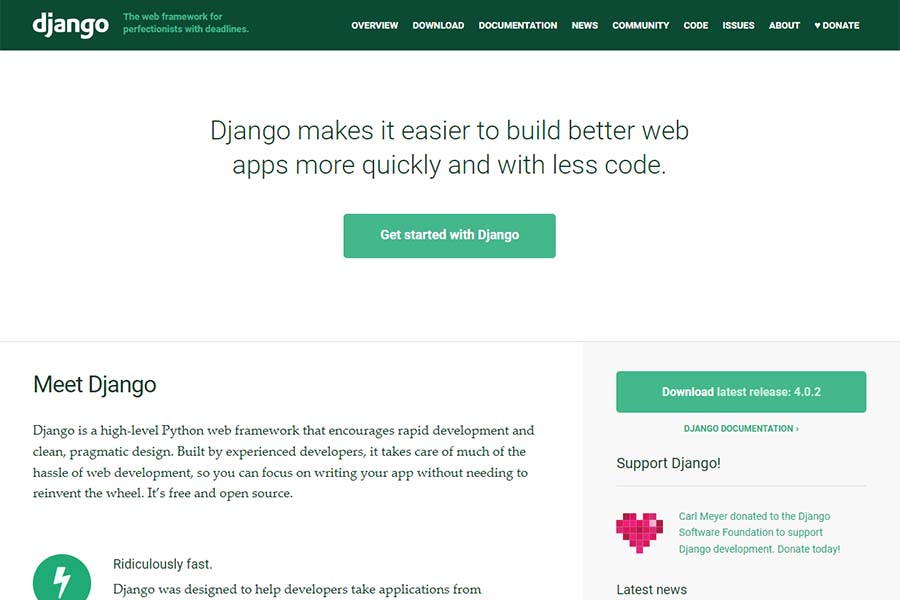What Is Django
Django is an open-source, Python-based web application framework for frontend as well as backend development. With it, developers can build a web app quickly without sacrificing quality. Learn more about this popular platform, what can it do, and its benefits.
What is Django – Explained
More specifically, Django was developed to provide developers with a structure for their code that simplifies the creation of complex websites. While other web frameworks can be used either for front-end (client-side) development or backend (server-side) development, Django can be used for both.
With Django, developers can build any type of website as well as web apps. Django was not developed for building mobile apps, but developers can use the Django Rest Framework and other toolkits to convert a web app into a mobile one. Or better, they can use another Python framework specially designed for creating mobile apps.
What is Django – Benefits
Versatile
As noted, with Django developers can build both the user interface and the logic and functionality of a website. This is an advantage for many developer teams who are already family with Python.
Easy to Learn
Django is an accessible framework for most developers as Python is simpler and more concise than other programming languages. Since it has been around for quite some time, you can find excellent documentation and tutorials for it online.
Strong Community Support
Django is a smart choice for long term projects because it’s open-source and powered by a large and very active community of developers who have embraced Python.
Lots of Features
Django comes with loads of features including URL routing, AJAX support, HTTP libraries, and easy database migration. For developers, these features are very important.
Scalable
The framework can handle lots of traffic and site activity, making it a safe choice for growing websites and other major, long term web projects. For big projects, this is the default platform for many developers.
Highly Customizable
Django is fairly easy to customize and integrate with other technologies. Experienced developers find the platform versatile and flexible enough to accommodate a wide range of web projects. In this regard, Django is not limiting like other platforms.
What is Django – Limitations
Django has grown a lot over the years, which has given rise both to performance issues and the feeling that it’s too sophisticated for small projects. Other technical issues some developers may find fault with include WSGI server requests and template errors that can be hard to spot.
What is Django – Django Uses
When it comes to big names who use Django, there’s no shortage of examples. The Washington Post, Dropbox, Instagram, National Geographic, Spotify, and Mozilla all use Django in one way or another, whether we’re talking about their websites or web apps.
What is Django – The Bottom Line
Django continues to be one of the most powerful and reliable web frameworks for frontend and backend development. Written in the concise and accessible Python programming language, it’s the first choice of many developers around the world who want to build large websites and sophisticated web apps. While newer platforms may be more suitable for small projects, for large, complex web projects, Django is still one of the best options around.
Additional Django Resources
- Official Django Website – Django makes it easier to build better web apps more quickly and with less code.
- Django Documentation – Django information to quickly get up and running.
- Django Forum – the latest discussions on the Django framework and applications and projects that use it.
